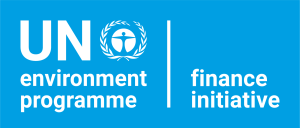Financing a just transition

Photo © ILO
Financing a just transition
Financial sector strategies and approaches to promote an inclusive climate transition
5–9 October 2026
The course is available in English
Introduction to the course
In the face of mounting environmental pressures and widening social inequalities, the need for financing models that support fair, inclusive, and sustainable economic transitions has never been more urgent. This course is designed to empower professionals across sectors to understand and harness the potential of sustainable finance to drive inclusive and equitable change.
Who attends this course?
This course is designed for a wide range of professionals working at the intersection of finance, sustainability, and development. These include: - Government officials - Staff from sustainability, ESG, and impact teams within financial institutions - UN agency staff and development practitioners - Researchers working on just transition and sustainable finance - Members of civil society organizations
What will you learn?
By the end of the course, participants will:
- Understand the policy and institutional landscape of just transition finance, including main stakeholders and the social dimensions of a low-carbon transition, relevant international frameworks, agreements and actors.
- Identify different types of financial actors and instruments and match them to specific just transition financing needs.
- Examine the roles and levers of financial institutions in enabling a just transition through their products, due-diligence, decision-making, engagement practices and partnerships.
- Learn about a range of financial strategies, instruments, and approaches—including bonds, loans, blended finance mechanisms, and ESG frameworks—that can support just transition objectives.
- Analyze real-world case studies from leading banks, investors, insurers, and development finance institutions to understand how just transition principles are applied in practice.
- Apply these insights through a course-long group exercise, working collaboratively to assess financing needs, identify relevant social considerations, and design partnerships for a just transition investment.
Course content
The course is structured around four thematic modules, complemented by a final day dedicated to peer learning, knowledge sharing, and networking. Sessions will combine technical presentations, expert interventions, interactive discussions and group work.
The main focus of the course will be on financing mechanisms and actors, including financial sector actors such as banks or insurance companies, and international financing mechanisms. National fiscal policies will not be covered in this edition of the course.
Module 1: Foundations of a just transition
This module introduces the core concepts of a just transition and their relevance in today’s global context. Participants will explore key international frameworks, policy tools, and institutional actors and explore social considerations of the climate transition. The group project, which runs throughout the course, will also be introduced.
Module 2: The finance landscape for a just transition
This module provides an overview of the financial architecture supporting just transition goals. It introduces different financial actors and instruments and discusses financial regulations and standards.
Module 3: Private financial sector engagement
This module focuses on the role and levers of financial institutions—such as banks, investors, and insurers—in supporting a just transition. It explores how financial actors can incorporate social and environmental considerations, including human and labour rights, into their operations, investment strategies, risk assessments and engagement strategies. Participants will also examine practical examples of financial instruments and partnerships used in this space.
Module 4: Partnerships and mobilizing capital
This module highlights how collaboration across sectors and institutions can enhance the effectiveness of just transition finance. Participants will explore different financing models, including blended finance, and learn about initiatives that have successfully mobilized capital for inclusive and sustainable development.
Consolidation and knowledge fair
The final day offers space for participants to present their group project work, share insights, and reflect on key lessons. A knowledge fair and networking session will offer space to exchange resources, tools, and contacts with peers and experts.
Certificate
Participants will receive a Certificate of Participation upon completion of the course.
About the co-organizers
The course will also feature expert contributions and real-world case studies from pioneering financial institutions, development finance actors, and standard-setting bodies shaping the future of just transition finance.
Contact
Contact the ITC-ILO: mmw@itcilo.org for any question you may have.
Course manager: Ms. Margarita Lalayan, m.lalayan@itcilo.org at Sustainable Enterprises and Economies (SEE) programme





